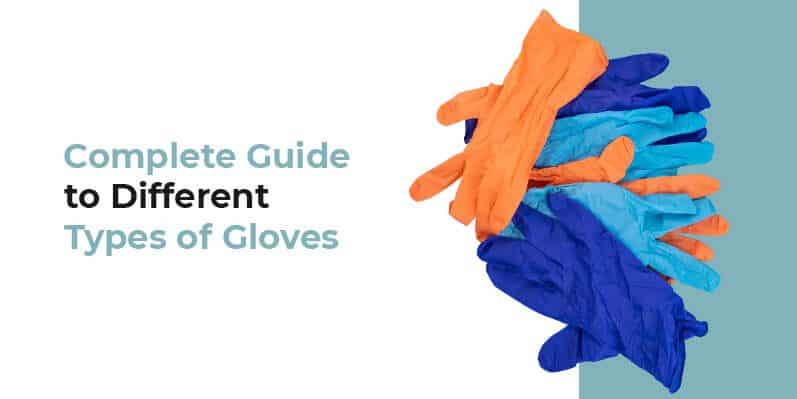Gloves
What Does Chemical Resistance for Gloves Really Mean?
The Occupational Safety and Health Administration (OSHA) defines a chemical as a chemical compound, element or a mixture of the two. This can mean virtually any substance you use in the workplace can qualify as a chemical. As a result, gloves come in various degrees of chemical resistance to safeguard you from different levels of…
Read MoreGuide to Wearing Nitrile Gloves
To prevent the spread of germs, nitrile gloves are a top choice for many industries. People can use nitrile gloves in commercial kitchens, laboratories, doctors’ offices, manufacturing warehouses and everyday life to protect against contamination. This type of personal protective equipment (PPE) is made from synthetic rubber that’s flexible, durable and less likely to cause allergic reactions…
Read MoreAllergies to Latex Gloves: How To Tell
Latex gloves were the gold standard in medical settings and other workplaces through the 1990s. However, as more workers develop sensitivity and allergies to this material, latex-free alternatives have become commonplace in workplaces. It’s important to understand what latex sensitivity and allergies are, as you may need to switch to other gloves to protect your…
Read MoreComplete Guide to Different Types of Gloves
Occupational Health & Safety reports that hand injuries account for around 40 to 60% of injuries suffered on the job, costing around $7,500 a claim, so it is evident hand protection is not something companies can afford to overlook. In many cases, hand protection means safety gloves. This gear is the first line of defense between your…
Read MoreWhat Are Nitrile Gloves?
Many industries require personal protective equipment (PPE) to safely and efficiently perform tasks. Products like disposable gloves are valuable for numerous applications, protecting both the wearer and the patients or products they handle. There are various glove materials available on the market, so it’s crucial to understand the benefits and limitations of each product before…
Read MoreNitrile Glove Thickness Levels
If you’re wondering how to choose nitrile glove thickness levels, you will want to select the right balance between dexterity and protection. You’ll need to pick the right nitrile gloves to protect yourself while still having plenty of manual agility and grip for your tasks. You can buy nitrile gloves with different thickness levels at…
Read MoreHow Are Vinyl Gloves Made?
Vinyl gloves consist of a synthetic material, which has some properties of latex or rubber but does not trigger allergies in the same way. Vinyl gloves also do not rely on the global supply of rubber, a natural material. This aspect can make them more affordable. SUNLINE Supply has various gloves for medical settings, food…
Read MoreHow Are Nitrile Gloves Made?
Nitrile gloves are made from a synthetic rubber material instead of the rubber that latex gloves consist of. Since many people have a latex allergy, nitrile is a popular alternative. It performs well, whether you’re trying to protect yourself from viruses or caustic chemicals, and you don’t need to worry about triggering allergies. SUNLINE Supply…
Read MoreCan You Reuse Nitrile Gloves?
Nitrile rubber gloves are a common form of PPE found in healthcare facilities, science labs and more. These affordable solutions work to form a barrier around the hands so that workers don’t come into contact with hazardous liquids, surfaces and microorganisms. Professionals want to get the most out of their PPE, but can you reuse…
Read MoreWhat Are the Four Levels of PPE Protection?
Personal protection equipment (PPE) works to keep professionals in healthcare, biochemical, food service and other industries safe from environmental hazards. Whether employees have to make contact with a dangerous surface or breathe in challenging conditions, providing the correct gear can reduce the chances of employees becoming ill or getting injured. There are four main levels…
Read MoreWhat Size Glove Should You Wear?
If you operate in the healthcare, food or cleaning industries, correct glove fitment is essential for worker safety and sanitation efforts. Determining your glove size is an important step in completing tasks accurately with a barrier between the skin and working surface. Procurement directors, facility managers and more must ensure employees have access to the…
Read MoreWhere and How to Store Disposable Gloves
Disposable gloves are critical personal protective equipment (PPE) used across numerous industries to protect employees and customers. They prevent cross-contamination and provide a barrier between your employees and potentially hazardous materials. Proper glove storage is vital for preserving the quality of protection you get from the gloves and preventing degradation over time. When disposable gloves are…
Read More









